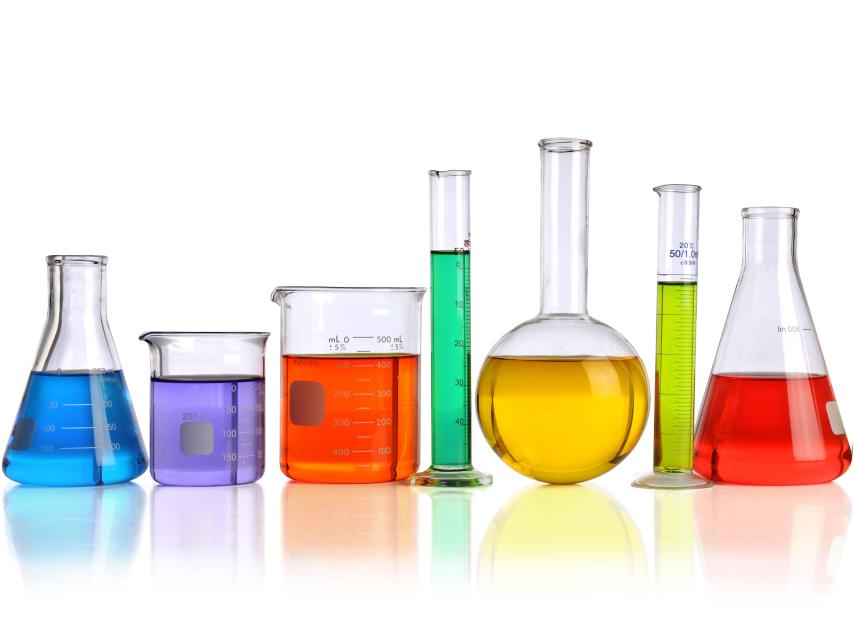Ceramic Material Inorganic Compound Testing
The testing of inorganic compounds within ceramic materials is a critical process that ensures product quality and meets industry standards. Ceramic materials are widely used across various sectors, including aerospace, electronics, construction, and biomedical industries due to their exceptional properties such as high strength, thermal stability, and chemical resistance.
Inorganic compounds present in these materials play a crucial role in determining the overall performance of ceramic parts. These compounds can significantly influence factors like thermal conductivity, electrical insulation, mechanical strength, and wear resistance. Our comprehensive testing services ensure that any defects or inconsistencies are identified early on, allowing for timely corrective actions to be taken.
Our team uses advanced analytical techniques tailored specifically for inorganic compound analysis within ceramic materials. This includes X-ray fluorescence (XRF), energy-dispersive X-ray spectroscopy (EDS), scanning electron microscopy (SEM) coupled with EDS, and transmission electron microscopy (TEM). These methods provide detailed elemental composition data down to atomic levels, enabling precise identification of even trace elements.
For accurate testing results, proper sample preparation is essential. Samples are carefully ground into fine powders or polished into thin sections depending on the required analysis method. The choice between different techniques depends largely upon what specific information needs to be obtained about the inorganic compounds present.
| Application Area | Description |
|---|---|
| Aerospace Industry | Ceramic components used in jet engines require precise testing to ensure they can withstand high temperatures and stresses without failure. |
| Electronics Manufacturing | Inorganic compounds help improve the conductivity of ceramic substrates for printed circuit boards (PCBs). |
| Construction Materials | The durability of building materials like tiles or bricks depends heavily on their inorganic composition. |
| Biomedical Devices | Inorganic compounds contribute to the biocompatibility and longevity of implants and prostheses. |
- Identifying impurities that could lead to corrosion or degradation over time.
- Determining the presence of harmful substances that might compromise safety standards.
- Evaluating the effectiveness of coating processes which enhance surface properties like hardness or water repellency.
In conclusion, thorough inorganic compound testing is vital for maintaining high quality standards across all sectors utilizing ceramic materials. By leveraging our expertise and state-of-the-art facilities, we provide reliable data that supports informed decision-making throughout product development cycles.
Industry Applications
Ceramic material inorganic compound testing finds extensive application across numerous industries where precision and reliability are paramount. Here are some key areas benefiting from this service:
| Industry Sector | Main Application |
|---|---|
| Aerospace & Defense | Ensuring the integrity and performance of critical components under extreme conditions. |
| Electronics & Semiconductor Manufacturing | Guaranteeing stable electrical properties essential for semiconductor devices. |
| Bioengineering & Medical Devices | Evaluating materials used in implants that must be biocompatible and durable. |
| Construction Materials | Improving the strength, durability, and aesthetic appeal of building products. |
The testing process involves examining raw materials as well as finished products to ensure compliance with international standards such as ISO 9001:2015 for quality management systems or ASTM E436-18 which specifies procedures for evaluating the chemical composition of ceramics.
Environmental and Sustainability Contributions
Incorporating sustainable practices into ceramic material production enhances environmental protection efforts while also contributing positively to society. Through rigorous inorganic compound testing, we aim to minimize waste generation by identifying defective materials early on during manufacturing processes. This not only reduces costs but also decreases energy consumption associated with reworking or discarding non-conforming items.
Moreover, our commitment to sustainability extends beyond internal operations; it encompasses supporting clients' green initiatives by providing accurate data necessary for meeting regulatory requirements such as REACH (Registration, Evaluation, Authorization and Restriction of Chemicals) in Europe. By ensuring compliance with these regulations, we help protect human health and the environment from harmful substances present within ceramic components.
To further promote sustainability, we utilize eco-friendly methodologies whenever possible, including selecting less toxic reagents and optimizing sample preparation procedures to reduce chemical waste production. These efforts contribute significantly towards reducing our carbon footprint while maintaining excellent service levels for our customers.
Competitive Advantage and Market Impact
In today’s competitive market landscape, having access to reliable and accurate inorganic compound testing results is crucial for staying ahead of competitors. By providing precise information about the composition of ceramic materials, we enable companies to make informed decisions regarding material selection, process optimization, and product design.
Our testing capabilities offer several advantages over traditional methods:
- Higher accuracy: Advanced analytical techniques ensure that even minute quantities of inorganic compounds are detected accurately.
- Faster turnaround times: Streamlined workflows reduce the time required to complete tests without compromising on quality.
- Broad range of services: We can cater to diverse customer needs ranging from basic compositional analysis to complex multi-element determinations.
These advantages translate directly into competitive benefits for our clients. For instance, manufacturers who utilize our testing services benefit from reduced development cycles leading to faster time-to-market products. Additionally, by ensuring consistent product quality across batches, companies can enhance their reputation among consumers and earn greater market share.





